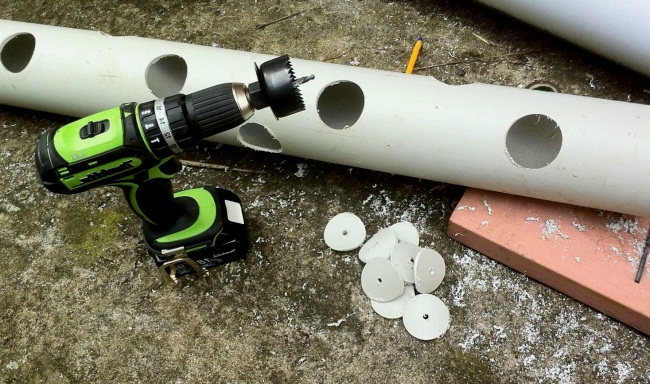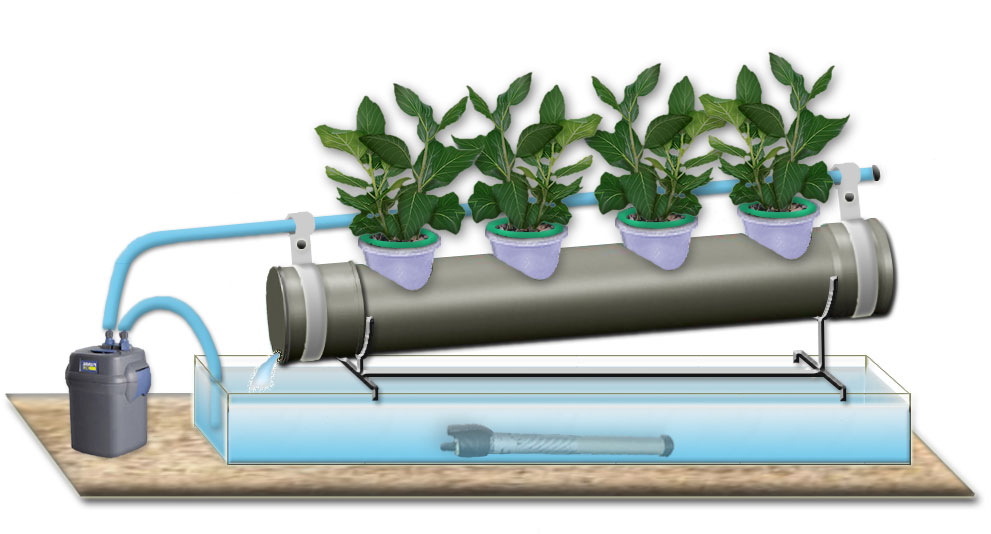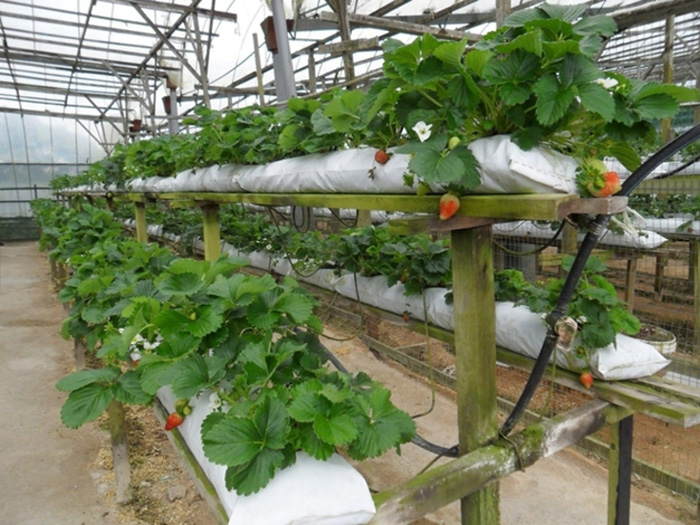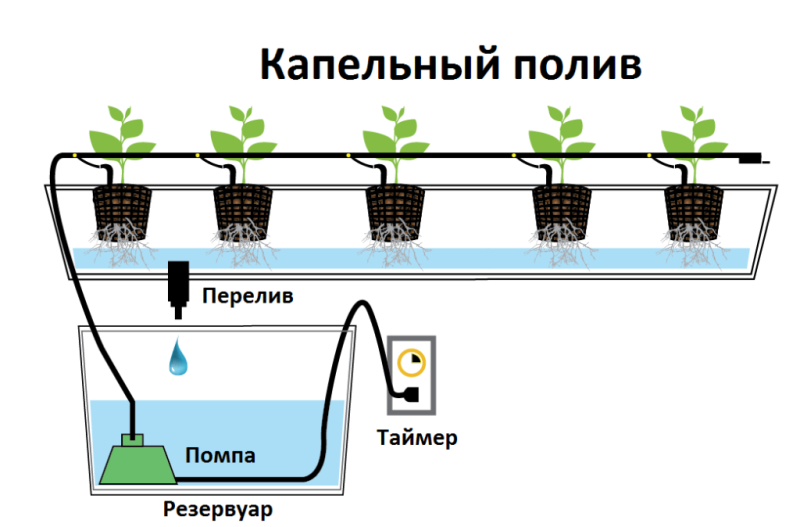How strawberries are grown in pipes: features and care
Content
Cooking pipes
To grow strawberries in a pipe, you need to take a PVC sewer pipe with a diameter of 15 cm of any desired length. For horizontal cultivation, it is cut lengthwise into 2 parts; for vertical beds, you will need a drill with large attachments. Holes are made in the pipe at a distance of 20-25 cm in size sufficient for planting a strawberry bush.
The lowest opening must be at least 30 cm. A 2 m long pipe can contain 20 vertically planted bushes. This is a soil pipe, and a thin irrigation pipe still needs to occupy the middle. It also needs to make holes in it - this time there are small holes in three rows, since water will still flow down, then holes are made only 2/3 of the length from above.
For growing strawberries, they take not only plastic pipes, they also use aluminum or chrome-plated steel - there is not much difference. A large pipe is filled with soil, which you can buy or mix on your own (ordinary garden soil + peat + humus + some sand and wood ash), at the bottom it is imperative to arrange a good drainage layer of fine gravel or expanded clay. For better air exchange, experienced gardeners advise adding sawdust as well.
Some craftsmen make pockets by exposing aluminum or plastic disposable plates from the holes, then it turns out that each bush is sitting on its balcony.
How to plant
Planting into the pipe is carried out as follows: a bush with roots no longer than 11 cm is lowered into the hole so that the roots are straightened, and covered with soil using other holes. The root collar of the bush should remain at ground level. Strawberries love acidic soil, so the prepared soil can be slightly acidified with vinegar, diluting 10 g with 1 liter of water.
Bushes grow, new leaves appear on each, then flowers, and all this greenery grows without touching the ground, gradually covering the dishes. The fruits will also hang - clean, without the threat of rotting from contact with wet ground. Pipes are placed in different ways: vertically straight, obliquely at different angles, but you need to plant strawberries so that its roots are always directed vertically downward.
Thus, the varieties "Gigantella", "Pomegranate", "Desnyanka" grow well, they are high-yielding, sufficiently resistant to diseases and pests. It is good if, before planting, the seedlings were kept cool and moist for several days. Strawberries are planted in pipes, as on the site, in early spring, the snow will melt slightly or in early autumn (August-September). If strawberries reproduce with tendrils, it is worth leaving unoccupied holes, directing the antennae there if necessary for rooting. It would be good to take the lower holes for accompanying flowers that can scare off pests; marigolds are perfect for this role.
Video "Features of growing strawberries"
Care and feeding
Caring for strawberries in pipes, even planted vertically, is no different from the same strawberries grown in the garden: watering, protection from pests, feeding, harvesting, rooting, reproduction.Strawberries need to be watered from above only before flowering, and after that it is advisable not to wet the leaves, the water should only fall on the ground. The soil should not be allowed to dry out; it is necessary to water it as needed, checking the moisture near the root with your finger. Watering is carried out almost automatically: the irrigation pipe is filled from above with water, and then it gradually pours out through the holes.
Fertilizers for growing strawberries in pipes are applied along with irrigation. Manganese sulfate, zinc, cobalt nitrate and boric acid are mixed in equal parts and diluted with water. Before flowering, you need to water the strawberries with fertilizers several times. And then the opinions of experts diverge. Some say that during the ripening of the fruits, you need to stop feeding altogether, while others argue that you need to make even more, otherwise there will be a small and unsweetened berry. What everyone agrees on is that the soil must be well fertilized in the spring before planting and in the fall, when the rooted young bushes are planted.
Pest control
Strawberry pipes are placed outdoors, on a balcony or in a greenhouse. Everywhere there is a danger of infection with fungal diseases, and pests can get it if you do not take any preventive safety measures. With vertical cultivation, it is not in vain that it is advised to give the lower tiers to calendula, you can sometimes even take separate holes between the strawberries with onions, garlic, dill - they also contribute to the healthy cultivation of strawberries, and fresh herbs are always at hand.
Strawberries can be attacked by slugs, snails, ants, Colorado beetles, ticks, aphids - everything, like in a garden. To combat the tick, Karbofos is used. Means "Metaldehyde" will come in handy if slugs with snails really get through. But the Colorado potato beetle will have to be removed mechanically, by hand - all preparations designed to combat it will have a harmful effect on the composition of the berry. But he is still more dangerous in the garden, and not on the balcony of a city high-rise building. It is best to get rid of aphids by washing and spraying with onion or garlic tincture, a solution of household soap.
It is very convenient to grow strawberries in vertical tubes, because you do not need to constantly bend over or squat, while standing straight it is much more convenient to care for the bushes and harvest the crop. And the space savings are amazing: one 2 m high pipe replaces a 4 by 6 meter section. For vertical cultivation, plantings can be arranged in tiers or along the perimeter of the greenhouse - also saving space.
Video "How to grow strawberries"
A useful guide will help beginners and already experienced gardeners to deal with all the issues that relate to growing strawberries.




